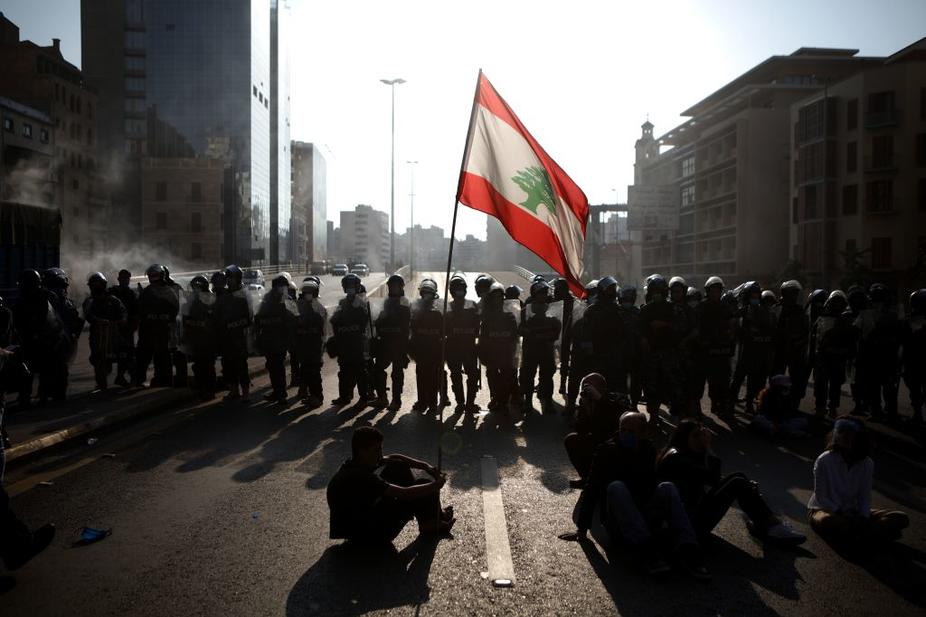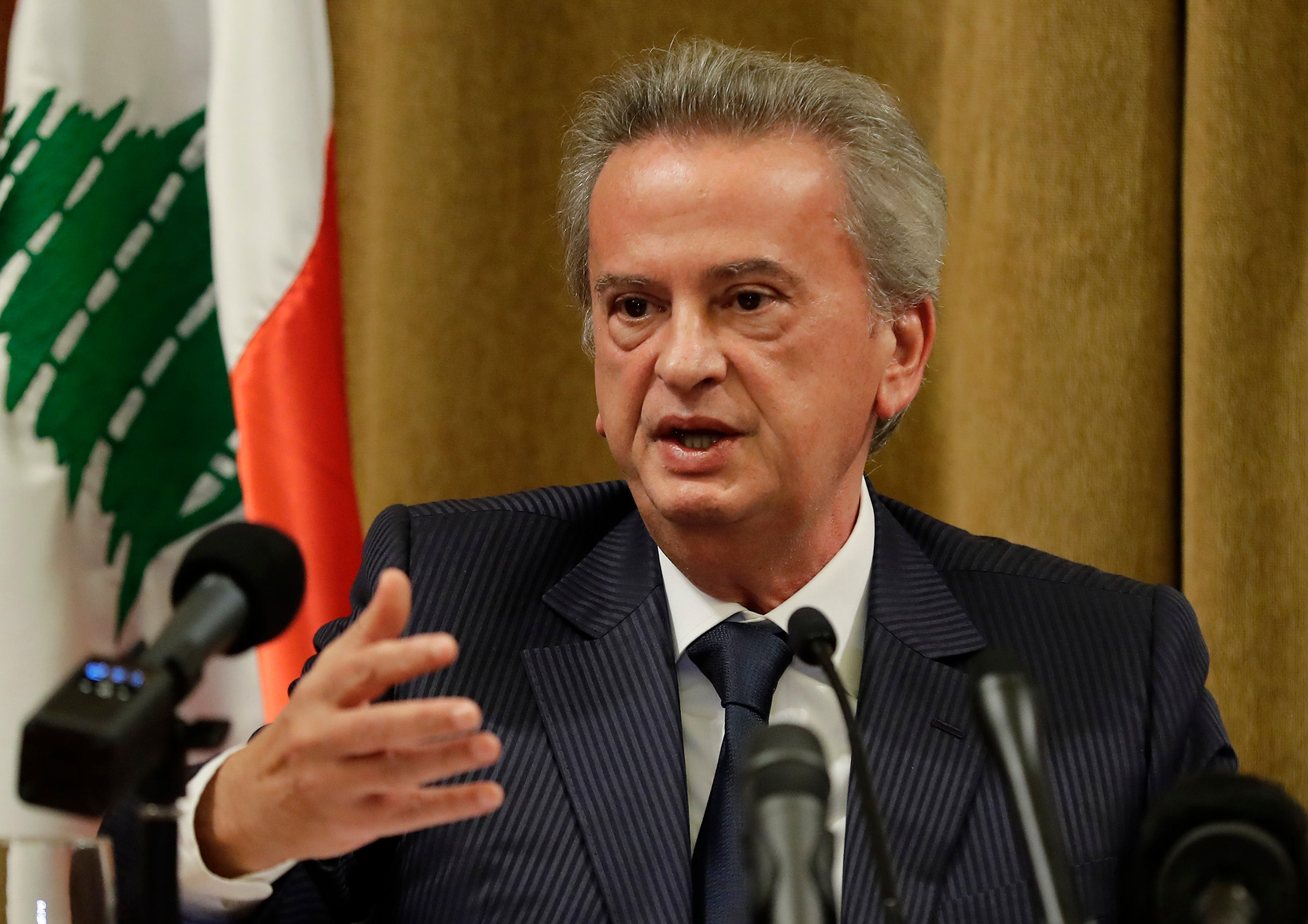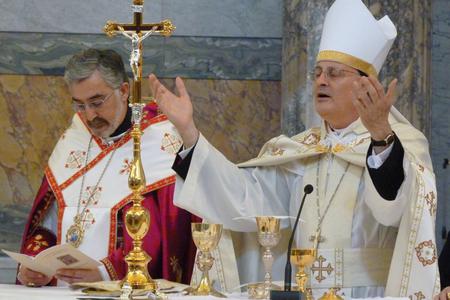
By Taylor McElwain -- theowp.org -- The United States ambassador to Lebanon recently stressed the importance of Lebanon’s parliamentary polls being held on time. These comments come amidst concerns that various parties in Lebanon seek to push off the vote, which is now scheduled for May 2022, because of fears they might lose power in the legislature. The elections are pivotal because they are the first following Lebanon’s descent into a financial crisis, which has been its biggest threat to stability since the civil war of the late 1900s. Worries mostly concern the Iranian-backed Hezbollah group, which some analysts think may lose power after the May elections.
Dorothy Shea, the US ambassador to Lebanon, told Reuters that “the international community is unanimous that the elections must be held on time in a fair and transparent manner. There’s no wiggle room.” In the same vein, the UN Security Council last week “underlined the importance of holding free, fair, transparent and inclusive elections as scheduled on 15 May 2022.” Karim Emile Bitar, the director of the Institute of Political Science at St. Joseph’s University in Beirut, said that the Amal Movement, of which House Speaker Nabih Berri is a member, and President Michael Aoun’s Free Patriotic Movement are two of the parties with the most to lose, and therefore the biggest interest in postponing the elections. Both parties are backed by Hezbollah and have significantly weakened since 2019. Bitar voiced concerns that “seeing that its two major allies are weakened could also incite Hezbollah to work for a postponement of the elections if there is a threat of losing its parliamentary majority.”

Riad Salameh -- Lebanese central Governor of Banque Du Liban
By Najia Houssari -- arabnews.com -- BEIRUT: Lebanese President Michel Aoun on Thursday stressed that “the financial criminal audit of Banque du Liban (the country’s central bank) should reach practical results, while steering clear of personal interests.” During a speech on Thursday to the recently formed National Anti-Corruption Commission, Aoun said the Lebanese people “have the right to know where their life savings went. Any party that says otherwise has certainly benefited from the wrong practices in managing the affairs of the state and its institutions, especially BDL. These parties are waging campaigns against me and continue to mislead public opinion.” Judge Ghada Aoun, who is politically affiliated with the president, continues to insist that Riad Salameh, the governor of the bank, be prosecuted. On Wednesday, the judge decided to prosecute Maj. Gen. Imad Osman, head of the Internal Security Forces, for preventing officers from State Security from entering Salameh’s home in Rabieh on Tuesday.
The State Security officers were acting on a summons issued by Judge Aoun against Salameh after he failed to appear three times as a witness in a criminal case brought by the group The People Want to Reform the System over allegations of “unjust enrichment, money laundering and wasting public funds.” The ISF’s General Directorate said: “The members in front of Salameh’s house have been stationed there for some time to protect him from any security threat and they are not authorized to interfere, report or prevent the implementation of any official memorandum. This was stressed during a call between Osman and the Director-General of State Security Maj. Gen. Tony Saliba as part of the continuous coordination between them.” Observers see the ISF and State Security as having differing loyalties within Lebanon’s sectarian political system. In April 2021, Judge Ghassan Oweidat, the public prosecutor, suspended Judge Aoun from cases related to major financial crimes and instead referred them to judicial inspection.
Judge Aoun insisted on carrying on with her investigations, however, and issued a subpoena against Salameh as a witness, not a defendant. His lawyers submitted a request to dismiss Judge Aoun from the case but she refused to step down. According to a BDL source quoted by Reuters: “Salameh is working normally from his office.” Judge Aoun accused the security services of being “an accomplice” and added that she has the right “to punish any employee seeking to violate the rule of law.”

By Doreen Abi Raad, Catholic News Service -- cna - As Lebanon crumbles under a socioeconomic crisis, Lebanon's religious are assuming roles as relief and social workers. "We cannot be a real priest, a real presence of Jesus Christ, without helping the people. Otherwise, we are just a functionary of the church," Maronite Father Hani Tawk told Catholic News Service. "We are missionary workers, because we see Our Lord Jesus Christ in the face of every family, every person we meet," said Father Tawk, a member of the informal group Church for Lebanon, which includes 15 priests and one nun from three Catholic rites: Maronite, Latin and Melkite. "We made this decision to be with the people, to help them, to support them and to seek justice," Father Tawk said.
The roots of their union stem from the October 2019 mass uprising in Lebanon against a corrupt government; during that time, some of the priests became acquainted on the street. Little by little, they started to meet. As Lebanon's economy began to unravel, individual and collective outreach initiatives began. They have lost their purchasing power. People are not able to afford the minimum necessities. It hurts so much to see the loss of dignity of the people Jesuit Father Gabriel Khairallah, with a team of volunteers that includes the Circle of Catholic Youth, organized the distribution of hot meals and food boxes and established a health clinic and dispensary. What started as 25 hot meals a day in 2019 has now grown to 260 a day. And from 30 weekly food boxes in 2019, the initiative is now delivering about 300 a week. The increase reflects the emergence of the "new poor" in Lebanon, Father Khairallah said.

سجعان قزي
@AzziSejean
لتعطيلِ التغييرِ الحقيقيِّ وعلى مَرْأى من الشعبِ، تُمرِّرُ القوى السياسيّةُ اللبنانيّةُ الوقتَ الجاري بتسوياتٍ صغيرةٍ، أقَلُّ ما يُقال فيها إنّها خلافُ المألوفِ والدستور. سَلَّمَ بها الحاكِمون والمعارِضون، بتبريراتٍ مختلفةٍ، ريثما تَنقشِعُ الاستحقاقاتُ الداخليّةُ والتسوياتُ الإقليميّة. منهم من يَنتظرُ الانتخاباتِ النيابيّةَ، ومنهم من يَقفِزُ مباشَرةً إلى الانتخاباتِ الرئاسيّة، ومنهم من يَتوقّعُ إرجاءَ الاستحقاقَين، ومنهم من يَترقّبُ حَدثًا جَللًا تَلْهَجُ به المنتدياتُ وتَتعطّشُ إليه بعدما سُدَّت طرقُ الإنقاذِ الداخليّ.
والطريفُ أنَّ كلَّ طرفٍ لبنانيٍّ يَتوقّعُ أن تأتيَ التطوّراتُ لمصلحتِه، فيُرجئُ الاعترافَ بالآخَر ويؤجِّلُ الحوارَ معه كأنَّ اللاعبين سيَتغيّرون غدًا. لكنَّ اللافتَ اليوم، أنَّ التسوياتِ الصغيرةَ لم تَعد، بدورِها، صالحة. رغم ذلك تَتصرّفُ الدولةُ المتهاويةُ كأنّها قائمةٌ ومكتِملةُ الصلاحيّاتِ وقابضةٌ على قرارِها، والعهدُ في أوّلِ طَلعتِه. هَمُّ أركانِ هذه الدولةِ أنْ يَحصُروا التغييرَ النيابيَّ والسياسيَّ في ما بينَهم، ويُراهِنوا على سأمِ قِوى التغيير (أين هي؟).
Khazen History


Historical Feature:
Churches and Monasteries of the Khazen family

St. Anthony of Padua Church in Ballouneh
Mar Abda Church in Bakaatit Kanaan
Saint Michael Church in Bkaatouta
Saint Therese Church in Qolayaat
Saint Simeon Stylites (مار سمعان العامودي) Church In Ajaltoun
Virgin Mary Church (سيدة المعونات) in Sheilé
Assumption of Mary Church in Ballouneh
1 - The sword of the Maronite Prince
2 - LES KHAZEN CONSULS DE FRANCE
3 - LES MARONITES & LES KHAZEN
4 - LES MAAN & LES KHAZEN
5 - ORIGINE DE LA FAMILLE
Population Movements to Keserwan - The Khazens and The Maans
ما جاء عن الثورة في المقاطعة الكسروانية
ثورة أهالي كسروان على المشايخ الخوازنة وأسبابها
Origins of the "Prince of Maronite" Title
Growing diversity: the Khazin sheiks and the clergy in the first decades of the 18th century
Historical Members:
Barbar Beik El Khazen [English]
Patriach Toubia Kaiss El Khazen(Biography & Life Part1 Part2) (Arabic)
Patriach Youssef Dargham El Khazen (Cont'd)
Cheikh Bishara Jafal El Khazen
Patriarch Youssef Raji El Khazen
The Martyrs Cheikh Philippe & Cheikh Farid El Khazen
Cheikh Nawfal El Khazen (Consul De France)
Cheikh Hossun El Khazen (Consul De France)
Cheikh Abou-Nawfal El Khazen (Consul De France)
Cheikh Francis Abee Nader & his son Yousef
Cheikh Abou-Kanso El Khazen (Consul De France)
Cheikh Abou Nader El Khazen
Cheikh Chafic El Khazen
Cheikh Keserwan El Khazen
Cheikh Serhal El Khazen [English]
Cheikh Rafiq El Khazen [English]
Cheikh Hanna El Khazen
Cheikha Arzi El Khazen
Marie El Khazen